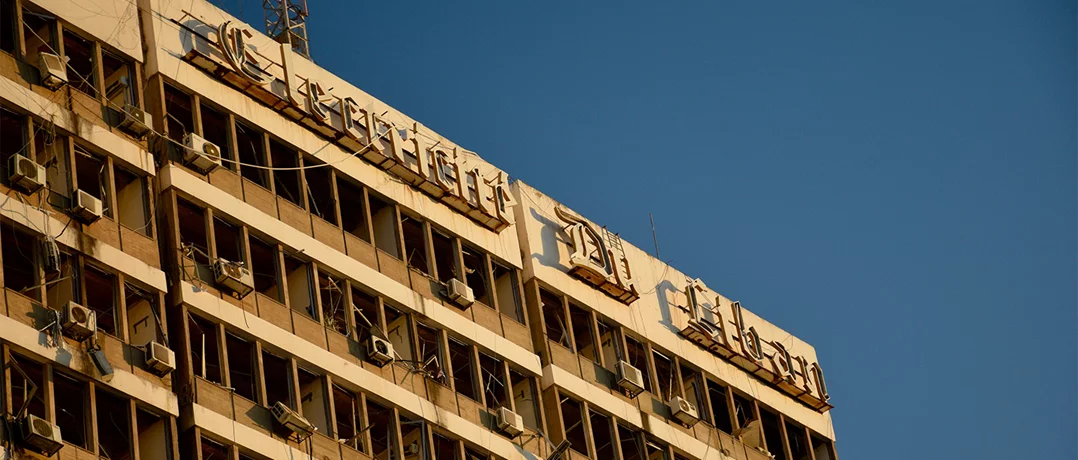Lebanon’s electricity crisis, driven by decades of corruption and mismanagement, is now facing reform with a new regulatory authority and push for transparency.
Lebanon’s electricity sector: a path to reform
Lebanon’s electricity sector: a path to reform


Lebanon’s electricity crisis is no longer just a technical issue, it is a mirror of decades of corruption, mismanagement, and political interests that have drained the state and left citizens in darkness. What the Lebanese endure today is not sudden, it is the cumulative result of successive governments’ failures to build a transparent and sustainable public service. Experts stress that reform cannot happen overnight. Corruption may erupt in a moment, destroying trust, but rebuilding requires time, political will, and persistence.
Staff and contracts
One of the sector’s core problems lies in the sidelining of qualified ministry staff, replaced by an army of advisers and contractors. This hollowed out institutional capacity, forcing reliance on outside consultants and private companies. The result was deepened chaos, covered by political and advisory networks that controlled the relationship between citizens and administration.
Contracts, whether organized or informal, became the main driver of corruption. Service provider agreements were renewed for years without transparent tenders. Fuel contracts drained the treasury, culminating in the notorious “Sonatrach” scandal, described by experts as a “real massacre.”
The problem was never the power ships themselves, or even importing electricity from Syria, but the way these services were procured, deals tailored to serve one company. Tenders bypassed the Public Procurement Directorate, as required by law, and were instead run directly by the ministry. Temporary projects were prioritized over permanent plants. For years, Cabinet meetings revolved around the power ship file, while strategic, long-term solutions were ignored. Calls to include permanent plants in tender books went unanswered, locking the country into costly short-term fixes.
The regulatory authority, born after 23 years
After more than two decades of obstruction, the Cabinet on September 11, 2025, finally approved the creation of the long-delayed Regulatory Authority for the electricity sector, activating Law 462 of 2002. The move came just six months after Joe Saddy assumed office as Energy Minister, ending years of political wrangling and deals that drained nearly $40 billion from the treasury.
A senior source at the Energy Ministry told Nidaa Al-Watan that the Regulatory Authority is “the cornerstone of reform,” and a key demand of international donors including the IMF, World Bank, and European Union. Crucially, the ministry has also stopped relying on treasury borrowing to fund fuel purchases, now covering costs directly from bill collection revenues.
Administrative cleansing and transparency
Former Deputy Prime Minister and Strong Republic bloc MP Ghassan Hasbani praised Saddy’s efforts at “administrative cleansing.” He said the minister is dismantling the networks of brokers who entrenched themselves in the sector, tightening licensing rules, auditing processes, and holding accountable those who abused their positions for political gain.
Hasbani noted that obliging Électricité du Liban to fund fuel from its own collections has pushed it to improve bill recovery, an incentive that could gradually enhance power supply. He stressed that the next step must be transparent, long-term fuel tenders conducted through the Public Procurement Authority, ending the era of expired contracts and wasteful extensions.
The dams and water file
Lebanon’s dams’ policy has also failed to meet its goals. Projects promoted under the banner of “water security” either suffered poor execution or lacked integration into a national water management vision. This failure is starkly visible during today’s drought, with no strategic reserves in place to cushion the crisis.
Observers argue Lebanon needs a comprehensive water strategy based on sustainability and long-term planning, not scattered dams. The recent removal of Jean Gibran, Director General of the Beirut and Mount Lebanon Water Authority, was seen as a signal of a return to institutional discipline. His dismissal came after concerns over his performance and political involvement while in a top administrative role.
The fuel and ship file
The legacy of the fuel contract signed by former minister Walid Fayyad under Prime Minister Najib Mikati’s government has resurfaced. Under this deal, Lebanon received Iraqi fuel, which was then exchanged for fuel meeting local specifications.
But controversy erupted when reports revealed some shipments were arriving from Russia via Turkey, yet priced as if they were Turkish, at higher rates. The Energy Ministry referred the case to judiciary and customs, while withholding a financial guarantee from the supplier to cover potential price differences.
One ship was detained, and when it attempted to leave port illegally, the Lebanese Army intervened. Investigations are still ongoing, but the ministry insists state rights are protected. Analysts say the case underscores the need for a full review of the contract’s history, as dozens of similar shipments entered Lebanon in past years without objection.
A tough but inevitable path
Hasbani emphasized that power supply can gradually improve if paired with sound management, transparent tenders, and international backing. But reform, he warned, must be “executive, not theoretical as in the past.” Public money is taxpayers’ money, he stressed, and citizens deserve proper service.
He added, “This sector was dismantled over more than 15 years and cannot be fixed at the push of a button. Structural reform needs time and political will. But the era of waste and corruption, which cost the treasury nearly $40 billion, has ended. A new phase is beginning for Lebanon’s energy future.”
A fateful crossroads
The stakes are existential. Waste in the electricity sector has cost the state more than the measures needed to protect small depositors. Reform is no longer a luxury, it is a condition for the survival of the state itself.
Lebanon today stands at a fateful crossroads, either it embraces transparent governance and attracts investment that restores trust and services, or it remains stuck in the cycle of depletion and darkness.


